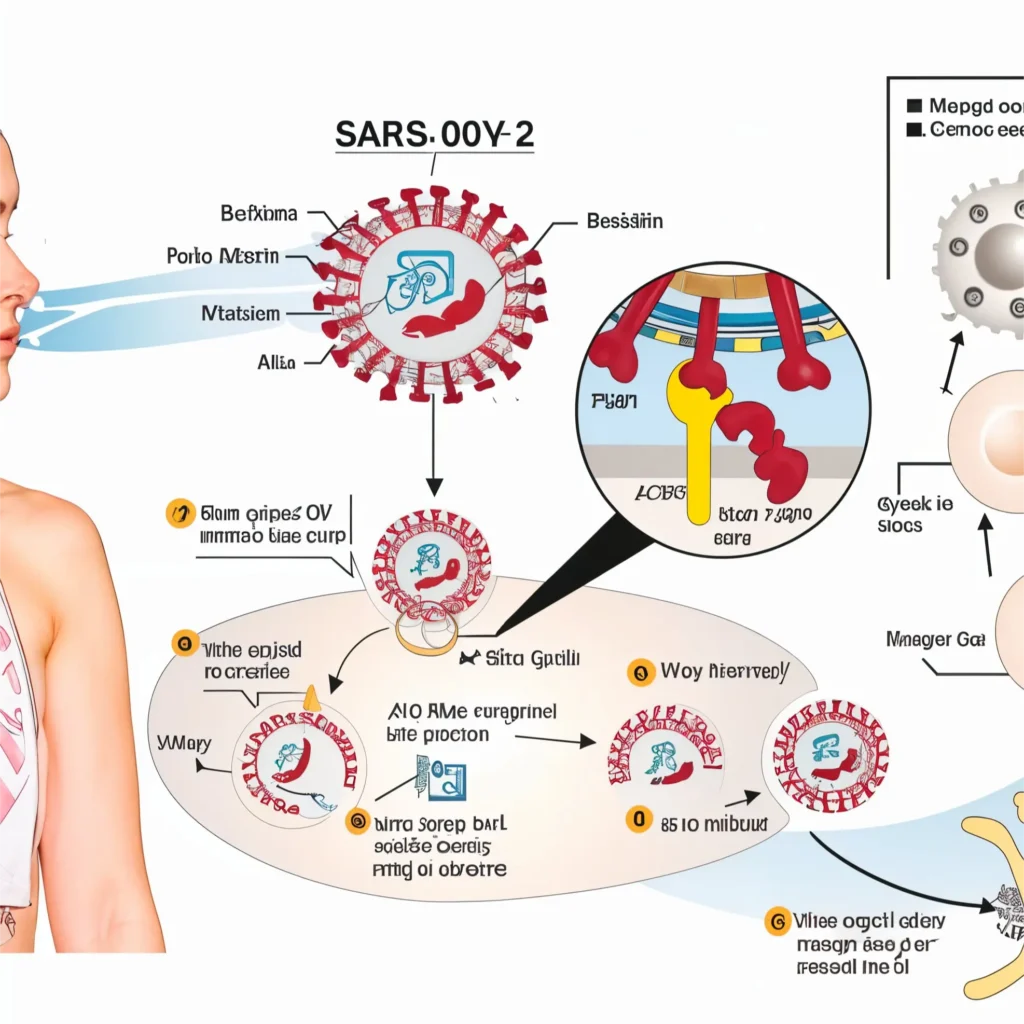COVID-19 (Coronavirus Disease 2019) is a viral respiratory illness caused by the SARS-CoV-2 virus. First reported in Wuhan, China, in late 2019, the disease quickly spread worldwide, resulting in a global pandemic. While no single drug completely cures COVID-19, early detection, timely treatment, and preventive measures have significantly improved recovery rates and reduced transmission. As one of the trusted Coronavirus Treatment Hospitals in Chennai, Deepa Hospital is committed to providing reliable information, accurate diagnostics, and expert medical care. Our dedicated team works around the clock to support patients and help the community effectively manage and overcome the challenges of COVID-19.
What is the new COVID variant?
The NB.1.8.1 COVID-19 subvariant has been officially listed as a “variant under monitoring” by the World Health Organization (WHO). First identified in China in January 2025, this subvariant has since appeared in various countries, including the United States. Confirmed U.S. cases have primarily been reported in California, New York, Virginia, and Washington, largely among travelers arriving from overseas through major airports.
This subvariant is part of the Omicron lineage, specifically linked to the JN.1 strain. A noticeable rise in infections tied to NB.1.8.1 has been observed in regions such as Southeast Asia, the eastern Mediterranean, and the western Pacific. Nevertheless, the WHO currently deems the variant’s overall risk to public health as low. Reassuringly, existing COVID-19 vaccines continue to offer solid protection against severe illness related to this strain.

Current COVID-19 Symptoms (as of May 2025)
New variants of COVID-19 typically present with a range of mild to moderate symptoms:
• Fever or chills
• Cough (with or without mucus)
• Shortness of breath
• Sore throat
• Runny or blocked nose
• Fatigue and body aches
• Headache
• Nausea, vomiting, or diarrhea
• Loss of taste or smell (less common now)
COVID-19 Diagnosis at Deepa Hospital
We offer a full range of COVID-19 testing services:
1. RT-PCR Test:
• High sensitivity and accuracy
• Detects viral RNA
• Results within 6–24 hours
2. Rapid Antigen Test:
• Delivers results in 15–30 minutes
• Best for quick screening
3. Chest CT Scan:
• Recommended for moderate or severe respiratory symptoms
• Assesses lung involvement
4. Antibody Test:
• Indicates past infection or immune response
• Not suitable for current infection diagnosis
When Should You Get Tested?
• If you show symptoms like fever, cough, or fatigue
• After contact with a confirmed case
• Before travel, surgery, or hospitalization if required
Home test kits are available but should be followed up with lab confirmation in case of positive results or ongoing symptoms.
COVID-19 Care & Treatment at Deepa Hospital
• Medications like Paxlovid are available for high-risk individuals
• Most effective within 5–7 days of symptom onset
2. Symptom Management
• Home care for mild cases with rest, fluids, and fever relief
3. Hospital Treatment
• Oxygen and steroid therapy for patients with severe symptoms
• Continuous monitoring, especially for those with chronic conditions
Causes of COVID-19 Spread and Severity (Original & New Variants)
1. Floating Contaminated Droplets: Microscopic droplets released through breathing, talking, sneezing, or coughing can stay suspended in stagnant air, especially indoors. Without proper ventilation, these airborne particles can be inhaled by others, increasing transmission chances.
2. Undetected Infections Without Symptoms: Individuals who are infected but show no visible signs of illness can unknowingly spread the virus. These silent transmitters often carry high viral loads in the early stages, making them unintentional sources of infection.
3. Persistent Viral Changes: Ongoing genetic mutations, such as those in the NB.1.8.1 subvariant, allow the virus to adapt and bypass immune defenses. This makes it easier for the virus to infect even those who have been previously vaccinated or recovered.
4. Densely Populated Enclosed Areas: Indoor settings where people gather closely—such as meeting rooms, trains, or shopping centers—can become high-risk zones. Poor air movement in these locations accelerates the spread of the virus.
5. Gaps in Immunization and Booster Coverage: Failure to complete vaccination schedules or receive timely boosters can weaken collective protection. This leaves immunocompromised individuals and those with chronic health conditions more susceptible to severe illness.
Stay Protected: Follow These Safety Steps
• Vaccination: Keep up with booster doses as per health guidelines
• Masking: Use masks in crowded or enclosed areas
• Hand Hygiene: Wash hands frequently or use sanitizer
• Social Distancing: Avoid close contact in high-risk places
• Stay Updated: Follow credible health authority updates
COVID-19 Strains: Past vs Present
• Earlier Strains: Caused more severe lung infections, higher hospitalization
• Current Variants: Often milder, with upper respiratory symptoms
• Immunity & Vaccines: Widespread immunity has reduced severity and fatality
• Ongoing Risk: Elderly and immunocompromised individuals should remain cautious.
Evolving Strains: Then vs Now
Original COVID-19 (2019/2020):
• High fever
• Dry cough
• Loss of taste/smell (very common)
• Breathing difficulty
• Fatigue and chest pain (in severe cases)
Newer Variants (e.g., Omicron, JN.1, NB.1.8.1 – 2023/2024):
• Sore throat
• Runny/blocked nose
• Mild fever
• Cough with phlegm
• Sneezing
• Body aches, tiredness
• Headache
• Gastrointestinal symptoms like diarrhea (in some)
Conclusion
At Deepa Hospital, our priority is your health and safety. While COVID-19 continues to evolve, the tools to fight it—awareness, vaccination, early diagnosis, and proper care—are stronger than ever. We encourage everyone to stay vigilant, follow preventive guidelines, and seek timely medical help when needed. Together, we can manage this ongoing challenge and protect our community’s well-being.

